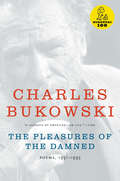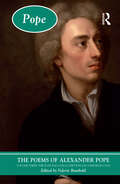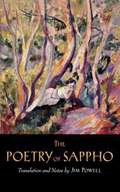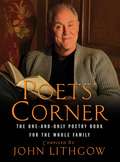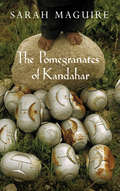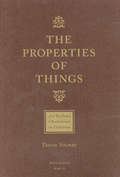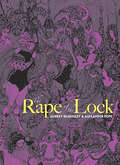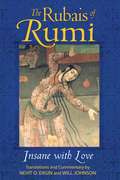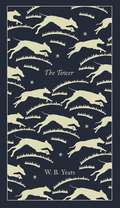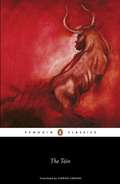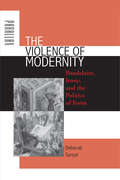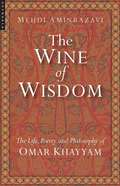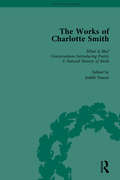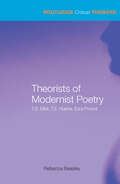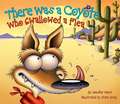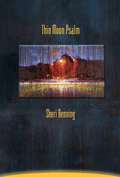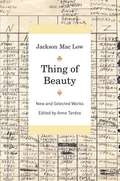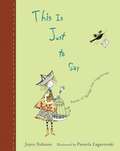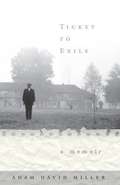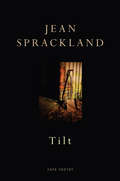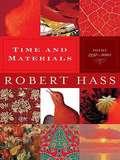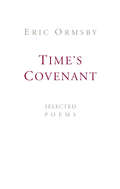- Table View
- List View
The Pleasures of the Damned: Poems, 1951-1993
by Charles BukowskiTo his legions of fans, Charles Bukowski was--and remains--the quintessential counterculture icon. A hard-drinking wild man of literature and a stubborn outsider to the poetry world, he wrote unflinchingly about booze, work, and women, in raw, street-tough poems whose truth has struck a chord with generations of readers.Edited by John Martin, the legendary publisher of Black Sparrow Press and a close friend of Bukowski's, The Pleasures of the Damned is a selection of the best works from Bukowski's long poetic career, including the last of his never-before-collected poems. Celebrating the full range of the poet's extraordinary and surprising sensibility, and his uncompromising linguistic brilliance, these poems cover a rich lifetime of experiences and speak to Bukowski's "immense intelligence, the caring heart that saw through the sham of our pretenses and had pity on our human condition" (New York Quarterly). The Pleasures of the Damned is an astonishing poetic treasure trove, essential reading for both longtime fans and those just discovering this unique and legendary American voice.
The Poems of Alexander Pope: The Dunciad (1728) & The Dunciad Variorum (1729) (Longman Annotated English Poets)
by Valerie RumboldAlexander Pope (1688–1744) is one of the greatest poets in European literature, comparable to the likes of likes of Shakespeare, Chaucer, Keats and Wordsworth. He is not easy to read though: his poetry uses dense literary and contemporary contextual allusions. This is why a book that gets the readers to the meaning of his poetry as painlessly as possible is so important.This volume features the complete text of Pope’s most significant poem, The Dunciad. The first-rate annotations that accompany this edition of the poem provide information on matters of interpretation and give details of allusions that might prove baffling to the contemporary reader.
The Poetry of Sappho
by SapphoFragments of the poetry of Sappho, Greek poetess who live in 7th century b.c. translated by Jim Powell. Book also includes a brief section on Sappho's life, Notes and and some references
The Poets' Corner: The One-and-Only Poetry Book for the Whole Family
by John LithgowFrom listening to his grandmother recite epic poems from memory to curling up in bed while his father read funny verses, award-winning actor John Lithgow grew up with poetry. Ever since, John has been an enthusiastic seeker of poetic experience, whether reading, reciting, or listening to great poems. The wide variety of carefully selected poems in this book provides the perfect introduction to appeal to readers new to poetry, and for poetry lovers to experience beloved verses in a fresh, vivid way. William Blake, Emily Dickinson, Edgar Allan Poe, and Dylan Thomas are just a few names among Lithgow's comprehensive list of poetry masters. His essential criterion is that "each poem's light shines more brightly when read aloud."
The Pomegranates of Kandahar
by Sarah MaguireSarah Maguire's rich and lyrical poems have been highly praised for the ease with which they ground precise, sensual detail within the wider context of world events. In this remarkable new collection, her poems travel greater distances than ever before. The title poem laments the devastation visited upon Afghanistan following decades of war. Other poems consider the casualties of political unrest: would-be migrants in Tangiers gazing northwards at the longed-for phantasmagoria of 'Europe'; and packs of wolves on the loose in post-Soviet Kazakhstan. But there are intimate poems too, often using scientific vocabularies to offset a personal moment, as in 'Landscape, with Dead Sea' where the erosion of the poet's skin is connected to geological transformations at the earth's core.
The Properties of Things
by David SolwayThe Properties of Things continues David Solway's explorations in the realm of fictive translation, this time that of the obscure thirteenth century scholar Bartolomaeus Anglicus. The result is a poetic alphabetary, ranging from the bawdy to the sublime.David Solway has been called "an internationalist of the imagination." He remains one of the country's most brilliant and inventive poets.
The Rape of the Lock: An Heroi-comical Poem... (Dover Fine Art, History Of Art Series)
by Alexander Pope Aubrey BeardsleyOnly rarely in publishing history has the ideal edition of a literary work been created, where text, typography, and illustrations complement one another perfectly. Among the few examples are the Kelmscott Chaucer, Baskerville's Milton, and Beardsley's Salome. Another such book is the 1896 edition of Pope's The Rape of the Lock, illustrated by Aubrey Beardsley.Beardsley's elaborate drawings for The Rape of the Lock were created during the last phase of his brief career. This nearly Romantic period, characterized by rich, brilliantly imagined decoration and ornamentation and by high textual contrasts, was perfectly suited to the blend of mock-heroic, satire, and delicate fancy of Pope's poems. As Beardsley's biographer R. A. Walker wrote, "These drawings show a verve, a wit and appreciation of the poem than can scarcely be matched in English literature." Using his unique line and "black blot" technique, Beardsley created a masterpiece of design and mood.This Dover edition reproduces the first edition: the complete text of the five-canto poem, notes, seven full-page drawings, two half-page drawings, and the original cover design by Beardsley.
The Rubais of Rumi: Insane with Love
by Will Johnson Nevit O. ErginThe first English translation of the rubais of Rumi • Presents 233 of the most evocative of Rumi’s 1,700 rubais • Shows that the mystical embrace is the way to directly experience the Divine Rumi is well known for the over 44,000 verses that appear in a 23-volume collection called the Divan-i Kebir. Yet Rumi also composed 1,700 rubais, short aphorisms and observations, whose depth and message belie their brevity. The form of rubais first became well known through the 11th-century collection The Rubaiyat of Omar Khayyam. But unlike Khayyam, who like most poets would sit and carefully craft each word, Rumi would compose and speak his poems through the spontaneous “language of poetry” that poured from his lips as he traveled the streets of Konya, Anatolia (present-day Turkey). Very few of Rumi’s rubais have been translated into any of the languages of the contemporary Western world. Now, Nevit O. Ergin, the translator of the complete Divan-i Kebir, and Will Johnson present here 233 of the most evocative of Rumi’s 1,700 rubais.Rumi’s poetry expresses profound and complex truths in beautiful yet simple language. He reveals that by going deep into the interior of our heart and soul, we can arrive at a place in which we once again merge and connect with the divine. This mystical quest, Rumi contends, is the birthright of us all. Anything less than a complete dissolving into the world of divine union will not provide the satisfaction and peace that we all seek. The simple, yet profound spiritual truths and visions contained in The Rubais of Rumi lead the way to the path of reconnection to the direct energies of God.
The Second Child
by Deborah GarrisonNine years after the stunning debut of her critically acclaimed poetry collectionA Working Girl Can't Win, which chronicled the progress and predicaments of a young woman, Deborah Garrison now moves into another stage of adulthood-starting a family and saying good-bye to a more carefree self. InThe Second Child, Garrison explores every facet of motherhood-the ambivalence, the trepidation, and the joy ("Sharp bliss in proximity to the roundness, / The globe already set aspin, particular / Of a whole new life")- and comes to terms with the seismic shift in her outlook and in the world around her. She lays out her post-9/11 fears as she commutes daily to the city, continues to seek passion in her marriage, and wrestles with her feelings about faith and the mysterious gift of happiness. Sometimes sensual, sometimes succinct, always candid,The Second Child is a meditation on the extraordinariness resident in the everyday-nursing babies, missing the past, knowing when to lead a child and knowing when to let go. With a voice sound and wise, Garrison examines a life fully lived.
The Tower: Manuscript Materials (Penguin Clothbound Poetry)
by W B YeatsA collectible new Penguin Classics series: stunning, clothbound editions of ten favourite poets, which present each poet's most famous book of verse as it was originally published. Designed by the acclaimed Coralie Bickford-Smith and beautifully set, these slim, A format volumes are the ultimate gift editions for poetry lovers. The Tower was W. B. Yeats's first major collection of poetry as Nobel Laureate after the receiving the Nobel Prize in 1923. It is considered to be one of his most influential collections. The title refers to Thoor Ballylee Castle, a Norman tower that Yeats purchased in 1917 and later restored. The Tower includes some of his greatest and most innovative poems including 'Sailing to Byzantium', a lyrical meditation on man's disillusionment with the physical world; 'Leda and the Swan', a violent and graphic take on the Greek myth of Leda and Zeus and 'Among School Children', a poetic contemplation of life, love and the creative process.
The Táin: A New Translation of the Táin Bó Cúailnge
by Ciaran CarsonFor jealousy of her husband's prize bull, Medb, Queen of Connacht, takes her people to war to steal its match from Ulster -- the legendary Brown Bull of Cuailnge. With the Ulsterman stricken by a curse, only the youthful Cu Chulainn stands against Connacht's assembled armies, but in feats of supernatural strength and extravagant violence, he sets about bloodily disassembling them.<P> Full of black comedy and brutal action, The Tain is the great epic of Irish folk literature, and Ciaron Carson's translation perfectly captures its excitement, humour and earthiness.
The Violence of Modernity: Baudelaire, Irony, and the Politics of Form (Parallax: Re-visions of Culture and Society)
by Debarati SanyalThe Violence of Modernity turns to Charles Baudelaire, one of the most canonical figures of literary modernism, in order to reclaim an aesthetic legacy for ethical inquiry and historical critique. Works of modern literature are commonly theorized as symptomatic responses to the trauma of history. In a climate that tends to privilege crisis over critique, Debarati Sanyal argues that it is urgent to rethink literary experience in terms that recall its contestatory potential. Examining Baudelaire's poems afresh, she shifts the focus of critical attention toward an account of modernism as an active engagement with violence, specifically the violence of history in nineteenth-century France.Sanyal analyzes a literary current that uses the traditional hallmarks of modernism—irony, intertextuality, self-reflexivity, and formalism—to challenge the historical violence of modernity. Baudelaire and the committed ironists writing in his wake teach us how to read and resist the violence of history, and thereby to challenge the melancholy tenor of our contemporary "wound culture." In a series of provocative readings, Sanyal presents Baudelaire's poetry as an aesthetic form that contests historical violence through rhetorical strategies of complicity, counterviolence, and critique. The book develops a new account of Baudelaire's significance as a modernist by dislodging him both from his traditional status as a practitioner of "art for art's sake" and from his more recent incarnation as the poet of trauma. Following her extended analysis of Baudelaire's poetry, Sanyal in later chapters considers a number of authors influenced by his strategies—including Rachilde, Virginie Despentes, Albert Camus, and Jean-Paul Sartre—to examine the relevance of their interventions for our current climate of trauma and terror. The result is a study that underscores how Baudelaire's legacy continues to energize literary engagements with the violence of modernity.
The Wind Knocks and Other Poems
by Mohammad Alvi Baider Bakht Marie-Anne ErkiSelected poems of Mohammad Alvi in English translation from the Urdu by Baidar Bakht and Marie-Anne Erki. Introduction by Gopi Chand Narang, poems selected by Baidar Bakht. The very first poem, 'Empty House,' foreshadows the themes in the collection.
The Wine of Wisdom: The Life, Poetry and Philosophy of Omar Khayyam
by Mehdi AminrazaviThe intoxicating message of Khayyam's famous Ruba'iyyat created an image of exotic Orientalism in the West but, as author Mehdi Aminrazavi reveals, Khayyam's achievements went far beyond the intoxicating message within these verses. Philosopher, mathematician, scientist, and mystic - his many different identities are examined here in detail, creating a coherent picture of this complex and often misunderstood figure.
The Works of Charlotte Smith, Part III vol 13
by Stuart CurranIncludes the works of Charlotte Smith, revealing a writer who wrote well in many genres, and, in whatever form she undertook, was innovative with the forms she inherited and strongly influential on those who followed her.
Theorists of Modernist Poetry: T.S. Eliot, T.E. Hulme, Ezra Pound (Routledge Critical Thinkers)
by Rebecca BeasleyModernist poetry heralded a radical new aesthetic of experimentation, pioneering new verse forms and subjects, and changing the very notion of what it meant to be a poet. This volume examines T.S. Eliot, T.E. Hulme and Ezra Pound, three of the most influential figures of the modernist movement, and argues that we cannot dissociate their bold, inventive poetic forms from their profoundly engaged theories of social and political reform. Tracing the complex theoretical foundations of modernist poetics, Rebecca Beasley examines: the aesthetic modes and theories that formed a context for modernism the influence of contemporary philosophical movements the modernist critique of democracy the importance of the First World War modernism’s programmes for social reform. This volume offers invaluable insight into the modernist movement, as well as demonstrating the deep influence of the three poets on the shape and values of the discipline of English Literature itself. Theorists of Modernist Poetry is relevant not only to students of modernism, but to all those with an interest in why we study, teach, read and evaluate literature the way we do.
There Was A Coyote Who Swallowed A Flea
by Steve Gray Jennifer WardThere was a coyote who swallowed a flea, Plucked from his knee, that tickly flea. Yippee-o-Ki-Yee! Skinny ol' Coyote delights readers of all ages as he swallows his way through this delicious southwestern-flavored retelling of a well-loved rhyme. As Coyote gets bigger, the story gets zanier as a bird, a bull, and even an entire cactus end up as dinner. It's pure fun for everyone—even that little flea.
They’re Poets and They Know It! A Collection of 30 Timeless Poems
by Meredith HamiltonAll sorts of poems by some of the world's greatest writers, including catchy limericks, elegant haiku, compelling narrative poems, playful free verse and more.
Thin Moon Psalm
by Sheri BenningWinner of the 2007 Anne Szumigalski Award for Poetry and the 2007 City of Saskatoon Prize and nominated for Book of the Year (Saskatchewan Book Awards) and longlisted for the 2008 ReLit Awards Fierce and delicate poems from a young poet reminiscent of Jane Hirshfield and Jan Zwicky Rapt, musical, passionately engaged, the poems in Thin Moon Psalm move towards their own inner stillness, while also bearing witness to the power of relatedness -- to family, lovers, and the prairie landscape itself. Many of them are poems of remembrance and deep grieving, recalling in etched details the rigours and joys of life on a prairie farm, and those iconic moments which are alive with the unspoken -- moments between father and daughter, mother and child, sister and sister, lover and lover, poet and friend. Especially they take on the burden of what is lost, knowing "There is always a room we will never return to" and "we return only through loss: the place where we began."
Thing of Beauty: New and Selected Works
by Jackson Mac Low Anne TardosThis landmark collection brings together poetry, performance pieces, "traditional" verse, prose poems, and other poetical texts from Jackson Mac Low's lifetime in art. The works span the years from 1937, beginning with "Thing of Beauty," his first poem, until his death in 2004 and demonstrate his extraordinary range as well as his unquenchable enthusiasm. Mac Low is widely acknowledged as one of the major figures in twentieth-century American poetry, with much of his work ranging into the spheres of music, dance, theater, performance, and the visual arts. Comparable in stature to such giants as Robert Creeley, John Ashbery, and Allen Ginsberg, Mac Low is often associated with composer John Cage, with whom he shared a delight in work derived from "chance operations. " This volume, edited by Anne Tardos, his wife and frequent collaborator, offers a balanced arrangement of early, middle, and late work, designed to convey not just the range but also the progressions and continuities of his writings and "writingways."
This Is Just to Say: Poems of Apology and Forgiveness
by Joyce SidmanWhen Mrs. Merz asks her sixth grade class to write poems of apology, they end up liking their poems so much that they decide to put them together into a book. Not only that, but they get the people to whom they apologized to write poems back. In haiku, pantoums, two-part poems, snippets, and rhymes, Mrs. Merz's class writes of crushes, overbearing parents, loving and losing pets, and more. Some poets are deeply sorry; some not at all. Some are forgiven; some are not. In each pair of poems a relationship, a connection, is revealed.
Ticket to Exile: A Memoir
by Adam David MillerAt age nineteen, A.D. Miller sat in a jail cell. His crime? He passed a white girl a note that read, ''I would like to get to know you better.'' For this he was accused of attempted rape. Ticket to Exile recounts Miller's coming-of-age in Depression-era Orangeburg, South Carolina. Miller reconstructs the sights, sounds and social complexities of the pre-civil rights South, and his youth as a closet rebel who successfully evaded the worst strictures of a racially segregated small town. By the time he is forced into exile, we realize that this fate was inevitable for a young man too intelligent and aware of the limitations of his society to remain there without disastrous consequences.
Tilt
by Jean SpracklandJean Sprackland's third collection describes a world in free-fall. Chaos and calamity are at our shoulder, in the shape of fire and flood, ice-storm and hurricane; trains stand still, zoos are abandoned, migrating birds lose their way - all surfaces are unreliable, all territories unmapped. These are poems that explore the ambivalence and dark unease of slippage and collapse, but they also carry a powerful sense of the miraculous made manifest amongst the ordinary: the mating of natterjack toads, ice on the beach ('dream stuff, with its own internal acoustic') or 'the fund of life' in a used contraceptive. Bracken may run wild across the planet 'waiting for the moment/to pounce on the accident/of the discarded match' but there are also the significant wonders of children and the natural beauty of the world they've inherited. Tilt is a collection of raw, distressed and beautiful poems, a hymn to the remarkable survival of things in the face of threat - for every degradation an epiphany, for every drowning a birth.
Time and Materials: Poems 1997-2005
by Robert HassThe poems in Robert Hass's new collection-his first to appear in a decade-are grounded in the beauty and energy of the physical world, and in the bafflement of the present moment in American culture. This work is breathtakingly immediate, stylistically varied, redemptive, and wise.<P><P> His familiar landscapes are here—San Francisco, the Northern California coast, the Sierra high country—in addition to some of his oft-explored themes: art; the natural world; the nature of desire; the violence of history; the power and limits of language; and, as in his other books, domestic life and the conversation between men and women. New themes emerge as well, perhaps: the essence of memory and of time.<P> The works here look at paintings, at Gerhard Richter as well as Vermeer, and pay tribute to his particular literary masters, friend Czeslaw Milosz, the great Swedish poet Tomas Tranströmer, Horace, Whitman, Stevens, Nietszche, and Lucretius. We are offered glimpses of a surprisingly green and vibrant twenty-first-century Berlin; of the demilitarized zone between the Koreas; of a Bangkok night, a Mexican desert, and an early summer morning in Paris, all brought into a vivid present and with a passionate meditation on what it is and has been to be alive. "It has always been Mr. Hass's aim," the New York Times Book Review wrote, "to get the whole man, head and heart and hands and everything else, into his poetry."<P> Winner of the 2007 National Book Award for Poetry, and the 2008 Pulitzer Prize for Poetry.
Time's Covenant
by Eric OrmsbyBringing together Eric Ormsby's entire poetic oeuvre thus far, including a healthy selection of previously unpublished poems, Time's Covenant is timeless, by one of America's best poets. Essential reading.
